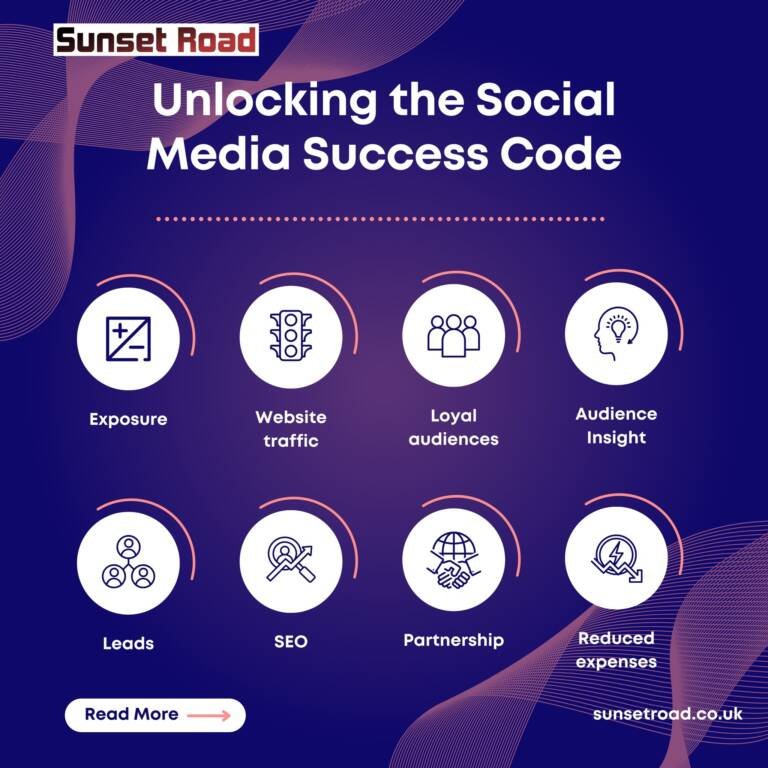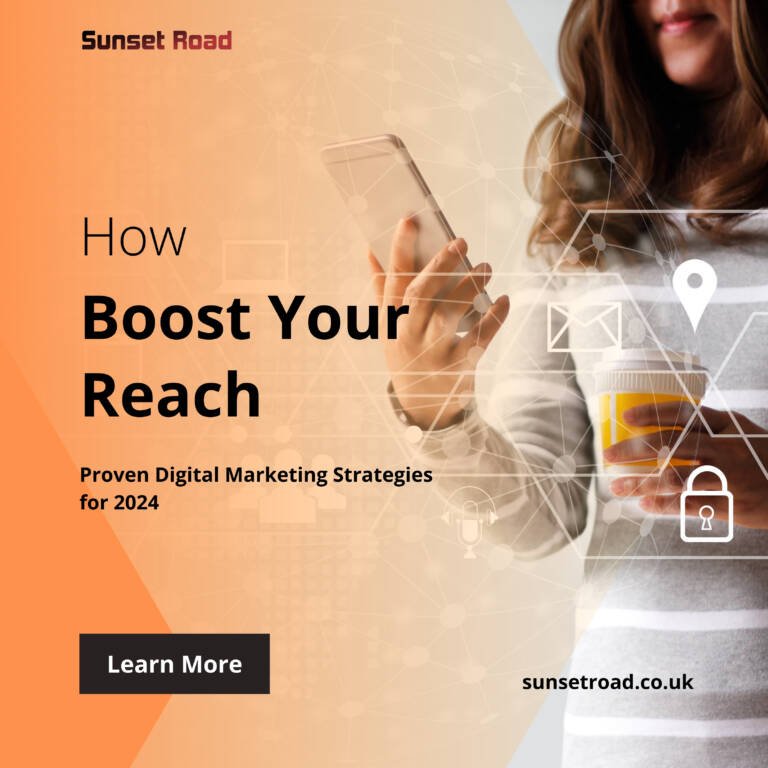Engaging UK Audiences on Social Media: Best Practices for Small Businesses

In today’s digital age, social media has become a powerful tool for businesses to connect with their audience,promote their products or services, and establish a brand presence. For small businesses in the UK, an effective social media strategy can be the difference between staying relevant and getting lost in the crowd. However, simply creating social media profiles is not enough. It’s crucial to understand how to engage your audience meaningfully, turning likes and follows into loyal customers. In this blog, we’ll explore the best practices for engaging UK audiences on social media, offering actionable tips for small businesses looking to grow their online presence.
Understanding the UK Social Media Landscape
Before diving into specific strategies, it’s essential to understand the social media habits of the UK audience. According to recent data, over 53 million people in the UK are active on social media, representing nearly 80% of the population. Popular platforms include Facebook, Instagram, Twitter (now X), LinkedIn, and TikTok, with each serving a different purpose and demographic. Facebook remains a dominant platform for connecting with older audiences, while Instagram is popular with younger users and offers visually-driven content. LinkedIn is ideal for B2B marketing and professional networking, whereas TikTok caters to an even younger demographic, excelling with short-form video content. Twitter is often used for real-time engagement, trending topics, and discussions. To maximize your impact, identify which platforms your target audience frequents and tailor your strategy accordingly
1. Create Relevant and Engaging Content
Content is the backbone of any social media strategy. However, not all content is equal, and what works for one audience may not work for another. The key to engaging UK audiences is to create content that resonates with their interests, preferences, and values. For instance, UK consumers tend to favor authenticity and transparency in marketing. They appreciate businesses that communicate openly, whether it’s about company values, behind-the-scenes operations, or real customer testimonials. A small business selling sustainable clothing, for example, could share stories about how their products are ethically sourced and the positive environmental impact of their manufacturing processes. Additionally, incorporating local or cultural references can make your content more relatable. For instance, during major UK events like Wimbledon, small businesses can create posts that tie into the event’s spirit. A local café could post about their special ‘Wimbledon-themed’ menu or promote limited-time offers during such occasions.
2. Use Visual Content Strategically
Visual content plays a pivotal role in capturing attention and engaging audiences. Platforms like Instagram and TikTok thrive on visually appealing content, whether it’s photos, videos, infographics, or stories. UK audiences, in particular, are drawn to high-quality, aesthetically pleasing content that tells a story. Consider using a mix of professional and user-generated content. Professional images or videos give your brand a polished look, while user-generated content (such as customers sharing photos of themselves using your product) adds authenticity and social proof.
For example, a small, independent bakery in London could post professional images of their cakes, but also encourage customers to share their own photos using a branded hashtag. This strategy not only engages existing customers but also helps attract new followers by showing real people enjoying the product. Short-form videos, especially on platforms like TikTok and Instagram Reels, are an excellent way to demonstrate product features, share quick tips, or provide behind-the-scenes glimpses of your business. A beauty brand, for instance, could create makeup tutorials or skincare routines using their products, helping potential customers see the value in their offerings.
3. Engage Through Storytelling
Storytelling is one of the most effective ways to connect with your audience on an emotional level. UK consumers value authenticity and are more likely to support businesses that have a compelling story behind them. As a small business, you likely have a unique journey that led you to where you are today. Share that story with your audience! Whether it’s the inspiration behind starting your business, the challenges you’ve faced, or your vision for the future, people appreciate personal stories. For example, if you run a family-owned business, you could post about the history of your company, how it started, and what sets it apart from larger competitors. Additionally, customer stories can be incredibly powerful. Showcase real-life examples of how your product or service has made a difference in someone’s life. A gym in Manchester might highlight a client’s fitness journey, sharing their challenges and successes while promoting the gym’s supportive community atmosphere.
4. Leverage Social Media Advertising
While organic reach on social media can take you far, investing in social media advertising can accelerate your growth, especially if you’re a small business trying to compete with larger companies. Platforms like Facebook, Instagram, and LinkedIn offer sophisticated targeting options, allowing you to reach your ideal audience based on location, interests, behavior, and more. For UK audiences, it’s important to tailor your ads with localized content. Mentioning regional aspects or UK-specific deals can make your ads more appealing. For example, a small e-commerce brand offering handmade products could create a campaign promoting free shipping across the UK or discounts during the festive season like Boxing Day or Black Friday.
Retargeting is another powerful tool in social media advertising. Many users might visit your website or engage with your content but not immediately make a purchase. Retargeting ads can remind these users of what they were interested in, increasing the likelihood of conversion. A small electronics shop, for instance, could retarget users who viewed a particular product but didn’t complete the purchase, offering a limited-time discount to entice them back.
5. Interact with Your Audience
Social media is a two-way street. It’s not just about posting content but also engaging with your audience. Responding to comments, messages, and reviews shows your customers that you care about their opinions and value their input. In the UK, customer service is highly valued, and businesses that respond quickly and helpfully are more likely toRunning polls, surveys, or Q&A sessions is another great way to engage your audience. For instance, a local restaurant could use Instagram Stories to run a poll on new menu items, or a beauty salon could host a live Q&A on Facebook to answer customer questions about their services. build lasting relationships with their followers. Whether someone is asking a question about your product or leaving feedback, make it a point to respond promptly and courteously. This can significantly impact your brand’s reputation.
6. Collaborate with Influencers
Influencer marketing has become increasingly popular, and it’s particularly effective in the UK market. Collaborating with local influencers allows you to tap into an established audience that trusts their recommendations. Whether it’s a micro-influencer with a niche following or a larger name with a broader reach, influencer partnerships can help boost your brand’s credibility and visibility. For small businesses, working with influencers doesn’t have to break the bank. Many micro-influencers, those with smaller but highly engaged audiences, are often more affordable and willing to collaborate in exchange for products or services. For example, a small vegan skincare brand could partner with a UK-based beauty blogger known for promoting cruelty-free products, helping to build brand awareness among a targeted audience.
7. Analyze and Adapt Your Strategy
One of the biggest advantages of social media is the ability to measure the effectiveness of your efforts in real-time. Platforms like Facebook and Instagram provide detailed analytics on your posts’ performance, including reach, engagement, and follower growth. Regularly reviewing your analytics allows you to identify what works and what doesn’t. For instance, if you notice that your audience engages more with video content than static images, you can adjust your strategy to focus on video production. A small retail shop might discover that posts about seasonal promotions perform better than general product posts, helping them refine their content calendar around key UK holidays. Similarly, tracking follower demographics can help ensure you’re reaching the right audience. If your target market is UK millennials but your content primarily attracts older demographics, it might be time to tweak your messaging, imagery, or platform selection.
Conclusion
Engaging UK audiences on social media requires a strategic approach that combines relevant content, visual storytelling, and active interaction. For small businesses, it’s essential to create content that resonates with your audience, capitalize on the right platforms, and constantly adapt based on performance data. By following these best practices, small businesses in the UK can build a loyal social media following, increase brand awareness, and drive meaningful customer engagement. Whether through storytelling, influencer collaborations, or localized campaigns, the key is to stay authentic and prioritize the needs of your audience.











